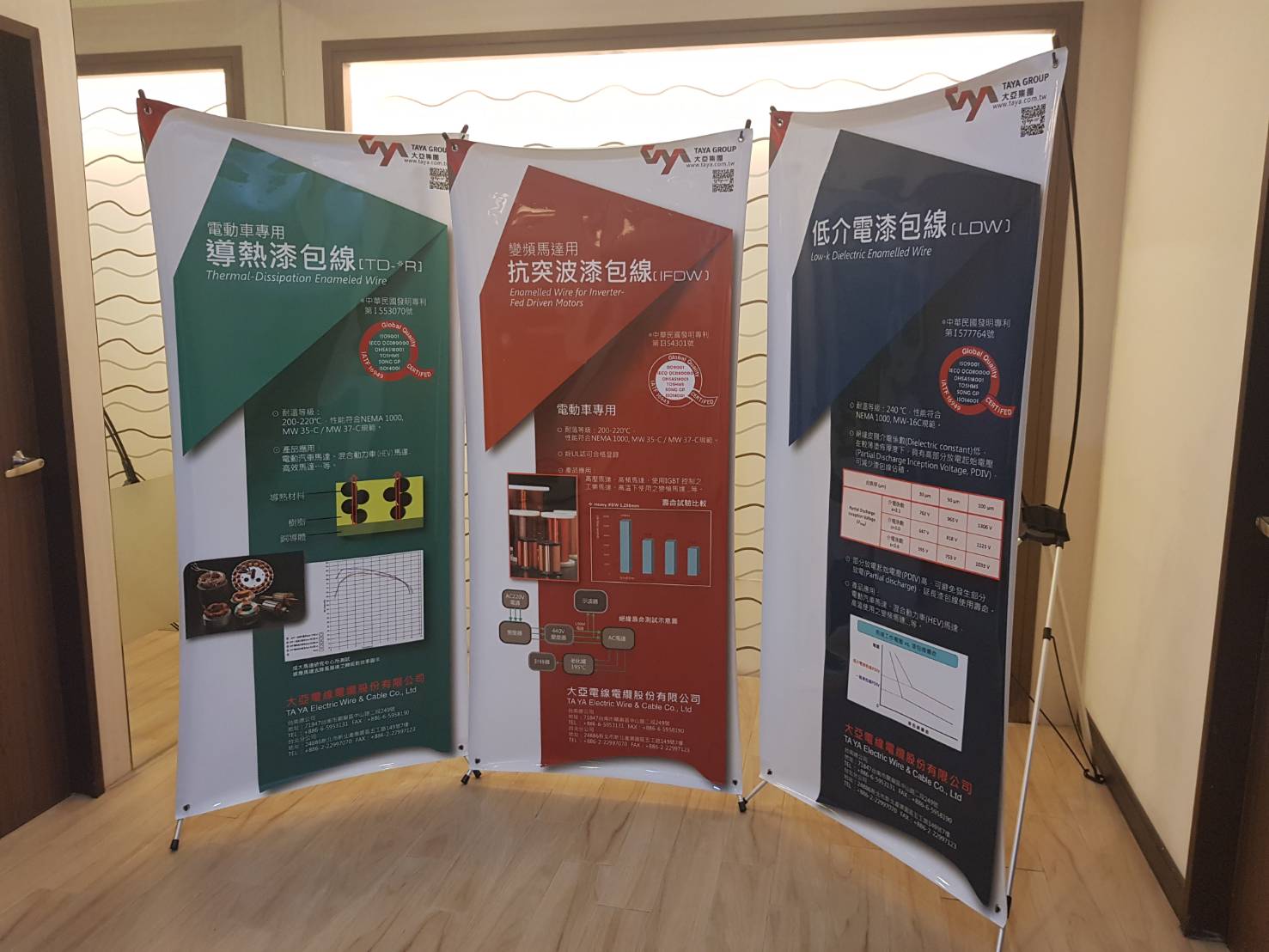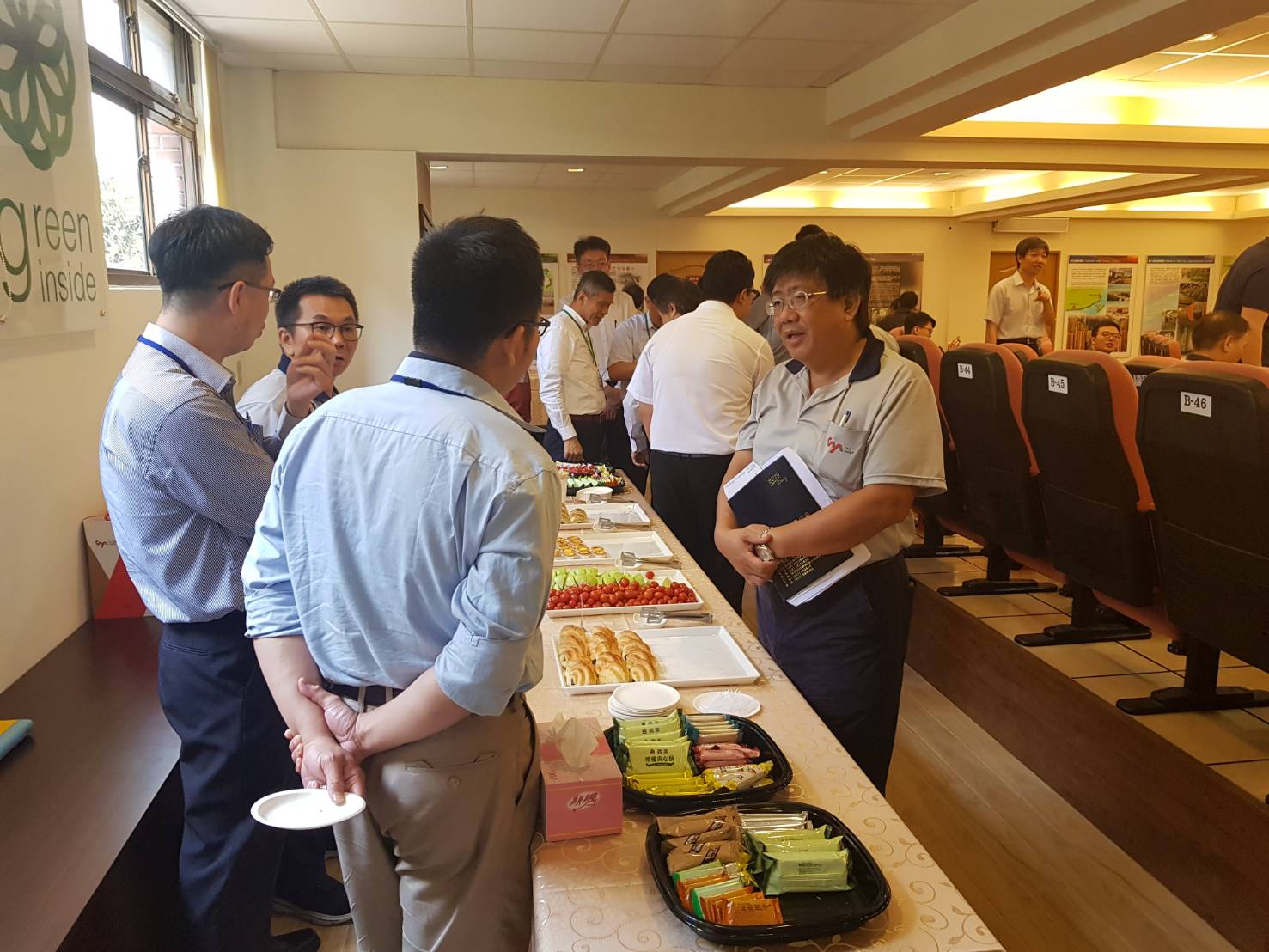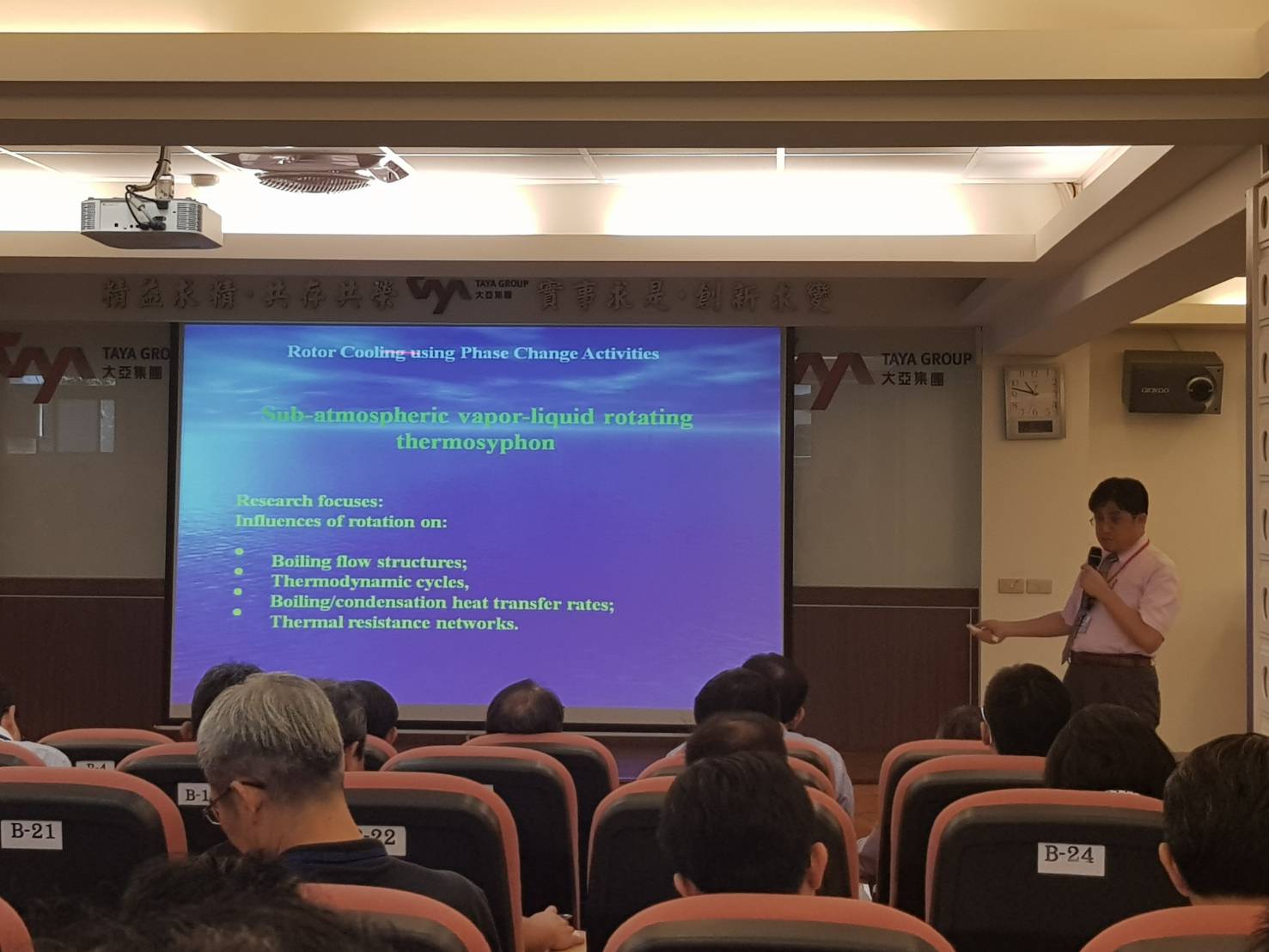Seminar analyzing future trends of car motor materials
2019-04-24
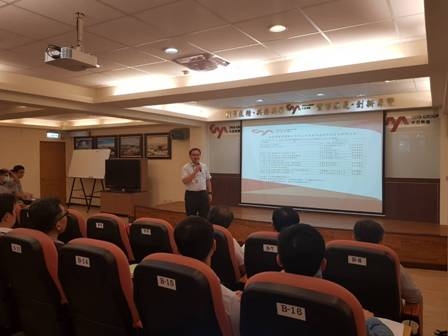
Visit : 1037
2019/04/24
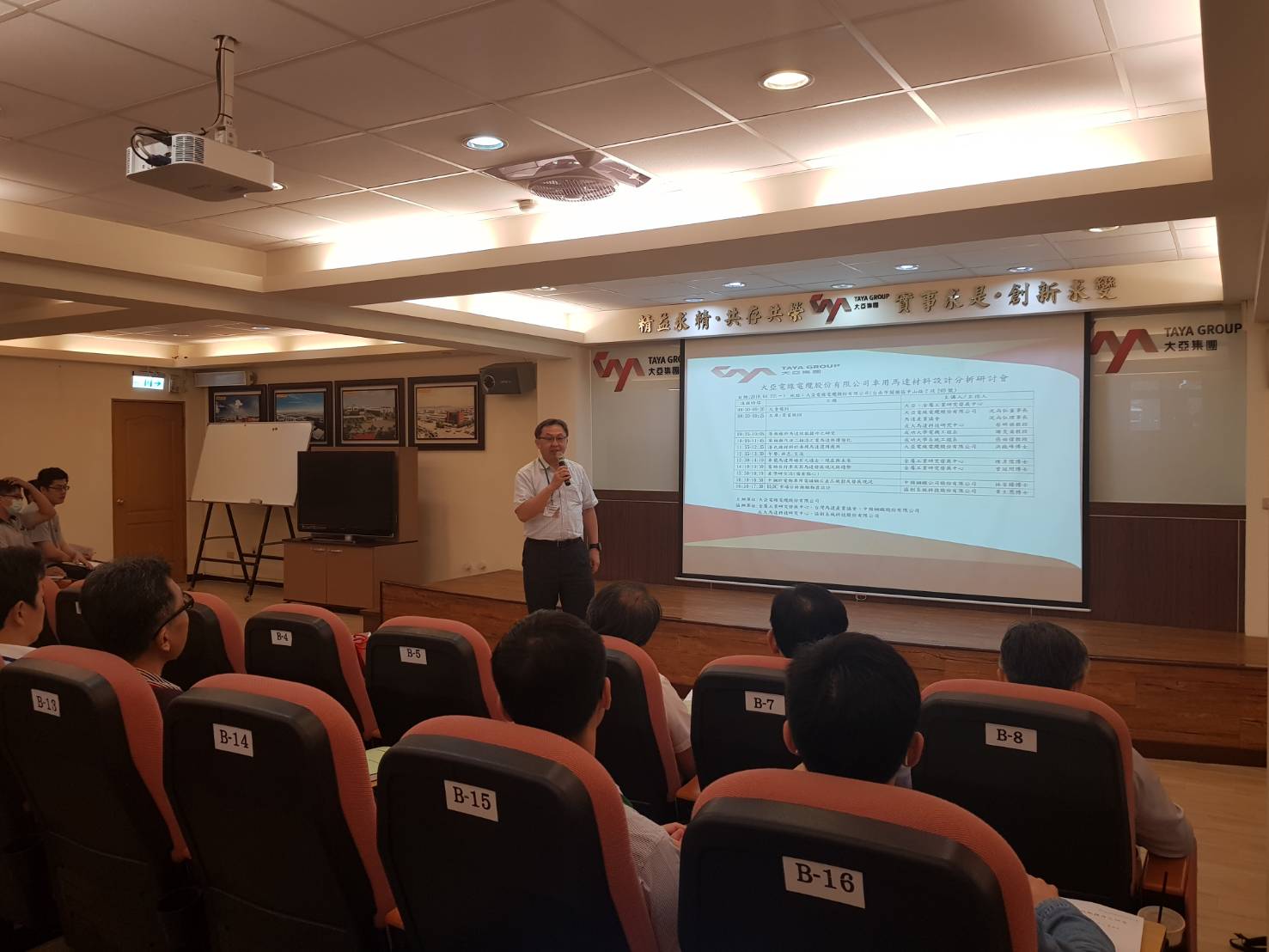
The Magnet Wire Business Group of the Taya Group held today (Apr 22) the “Car Motor Materials Analysis Seminar” at the group’s headquarters in Guanmiao, Tainan. The academe, industry, and the government were invited to share at the seminar, including the Metal Industries Research & Development Centre, China Steel Corporation, NCKU Electric Motor Technology Research Center, Taiwan Motor Industry Association and AMIT System Service Ltd., with nearly 200 participants.
At the seminar, the new materials of the latest car motors and the technology innovation service model were introduced to develop the high value-added R&D capacity of enterprises and increase new R&D opportunities for the industry. Professor Ming-Fu Hsieh of the Department of Electrical Engineering, National Cheng Kung University, presented the “Study on Motor Performance Enhancement of Thermal Dissipation Wire;” Professor Shyy-Woei Chang presented the “Thermal Conductivity Enhancement of Single-Phase and Binary Liquid-Vapor Phase Motors;” Dr. Chi-feng Hung of Ta Ya Electric Wire and Cable presented the “Optional Use of Enameled Wire in Car Motors;” Dr. Yen-ju Chen of the Metal Industries Research & Development Centre presented the “The Past, Present and Future of Car Motor Magnets;” Dr. Kuan-min Cheng of the Metal Industries Research and Development Center presented the “The Present Status and Future Trend of Development of Electric Power Assisted Cycles and Their Motors;” Dr. Shen-yang Lin of China Steel Corporation presented the “Planning and Development Status of EV Electromagnetic Steel Projects at SCS” and Dr. Chu-en Huang of AMIT System Service Ltd. presented the “BLDC Market Analysis and Driver Design.”
In his address, Shen, Shang-Hung, chairman of the Taya Group and Taiwan Motor Industry Association, said that when looking back at the current EV development from a future perspective, we are at the infancy, and there is much space for improvement in materials design. He hopes that the seminar can contribute to the development of the EV industry and benefit participants.
According to Mi-Ching Tsai of the NCKU Electric Motor Technology Research Center, this was the first seminar ever held voluntarily by the industry, and all seatswere filled.
Taiwan is expected to cease production of the petrol scooters/motorcycles in 2035, suggesting a bright future for EVs. Car motors are used to drive a car and other rotary parts in a car. The drive motor is the key component that determines the driving efficiency of EVs, and different materials and designs will affect the car’s overall performance. In response to the government policy in the future, the rise in the EV demand will boost the demand for drive motors, accordingly.
Given the wide range of EV and car motors, the development and research of new technologies and new materials can help enhance motor efficiency. In such a trend, new materials and manufacturing, design, and analysis technologies have become the focus of manufacturing advanced motors. This seminar has facilitated the exchange among the academe, the industry and the government. It is hoped that all three sectors can create industrial upgrading through together in the future.
